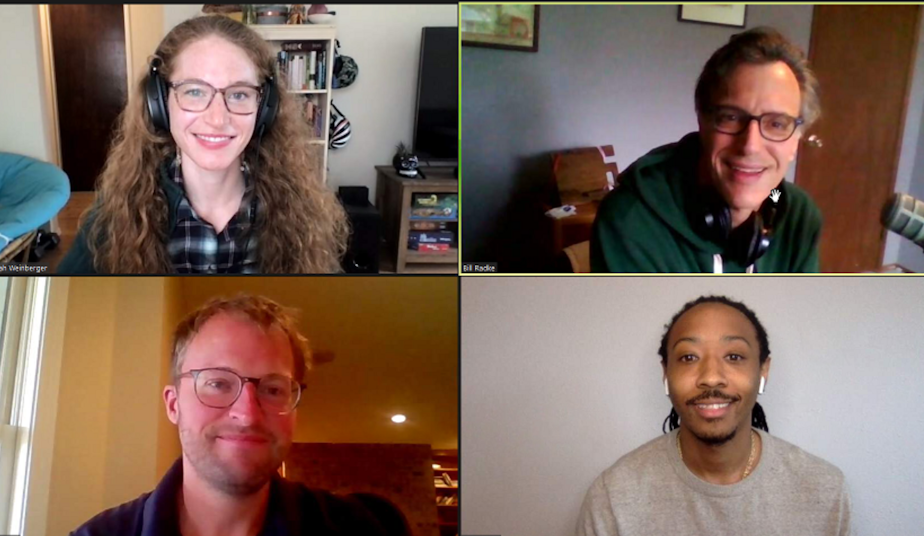COVID makes a rebound, Washington begins planning for refugees, and the mosquitos are coming (but don't panic yet), this week

Bill Radke discusses this week's news with Crosscut Science and Environment Reporter Hannah Weinberger; South Seattle Emerald reporter and co-host of Clap Back Culture on Converge Media, Mike Davis; and Kitsap Sun Military Reporter Josh Farley.
This week's big Covid news comes in two parts: number one, the Governor announced vaccines will be required for all school employees. And by all school employees - he means all. Public schools, private schools, charter schools , and higher education. Teachers, as well as anyone who comes in contact with children, such as coaches, bus drivers, and childcare providers, will be required to get vaccinated by October 18. And the second part of this week's Covid news is that starting Monday, everyone over age five will have to wear masks indoors again. That regardless of vaccination status, unless you have a medical condition that prevents mask-wearing, or you're alone. The only exceptions are small, private indoor gatherings or offices not easily accessible to the public where everyone is vaccinated. Will these requirements work as Governor Inslee hoped? Or have unintended consequences?
This week's other big news story doesn't come from Seattle, but it does impact us, just as it does the rest of the United States. With the Taliban retaking control of Afghanistan, thousands of Afghans may come to the Puget Sound area. In King County, the senior director of Afghan Health Initiative, Ariana Anjaz, is expecting two thousand families to resettle here. How is Washington going to handle that influx of people?
This week the Seattle City Council approved new limits on crowd control weapons at the disposal of Seattle Police. In a unanimous decision, the new ordinance will restrict the use of tear gas, flash bang devices, pepper spray, and completely ban blast balls and other, more dangerous crowd control weapons. The restraint of police weapons has gone through a difficult process, as the judge overseeing Seattle’s consent decree blocked the initial ordinance set in July of last year. This version is slightly pared down to fit within the consent decree’s oversight, who will still need to approve this ordinance. But do those changes water down the ordinance too much to be useful?
This week protestors rallied around Redmond City Hall to protest the county’s plans to purchase and convert the Redmond Silver Cloud Inn into a homeless housing center. Locals voiced concerns with crime and drug use, and inside city hall some asked for the mayor to push back against the county on the sale. But the county is all in on converting hotels into housing for the homeless -- in the last month it purchased seven hotels across King County, adding more than 800 rooms in all. From the county’s perspective, the process is much cheaper and more efficient than building new housing, and as the pandemic emptied hotels, the process has become a cornerstone of the county’s approach to a lack of housing options. The county saves time and money by buying up hotels, but is homelesness a problem that can be solved using a cheap and fast method?
One of the many luxuries of the PNW summer is a noticeable lack of mosquitos. Well, in addition to wildfires and other problems arising from climate change, the “little fly” is finding more hospitable areas in the state. This isn’t great for a number of reasons -- first, mosquitos are difficult to monitor, even as scientists know that they’re migrating to new areas across the United States. And it’s especially concerning because mosquitos carry vector-borne diseases, a concern that also follows bugs like ticks (which we do have here in Washington already). But guest Hannah Weinburger explains that we shouldn't panic about our new bug neighbors... at least, not yet.






